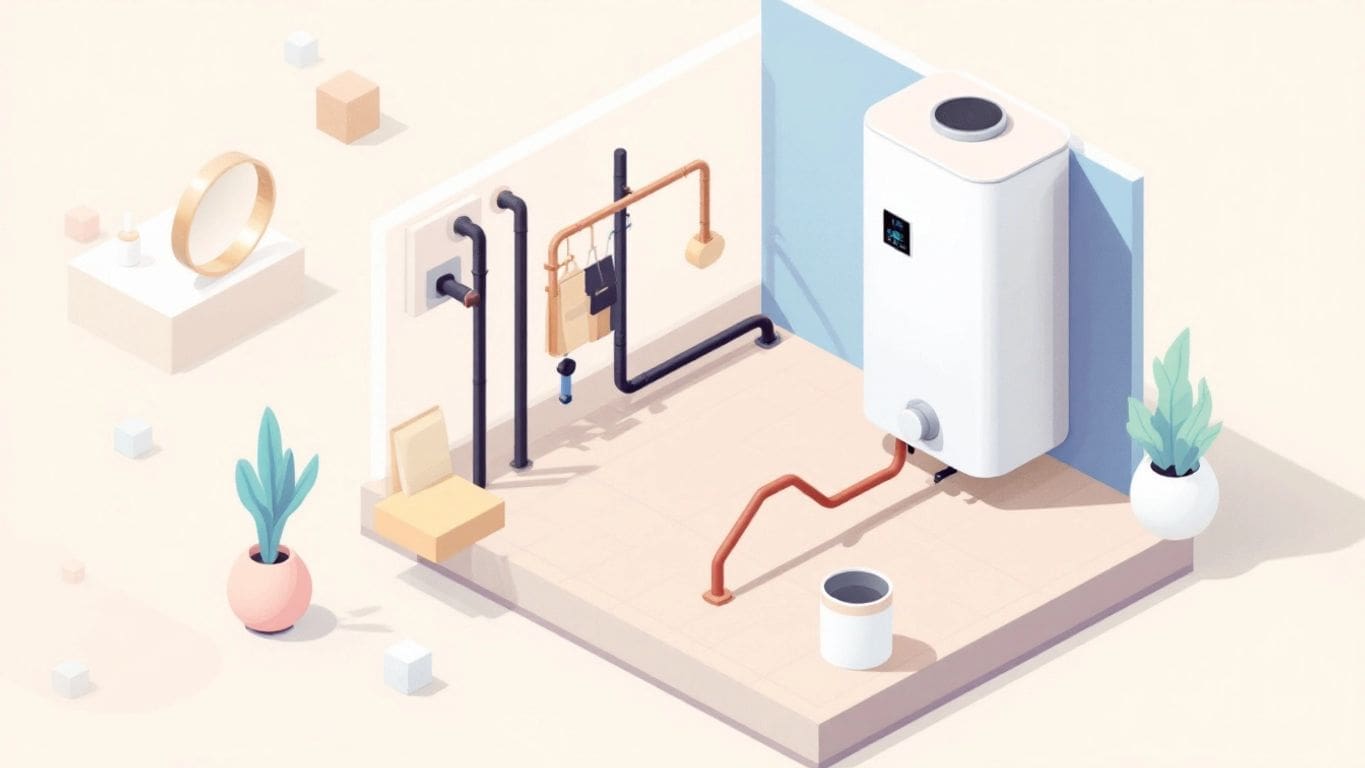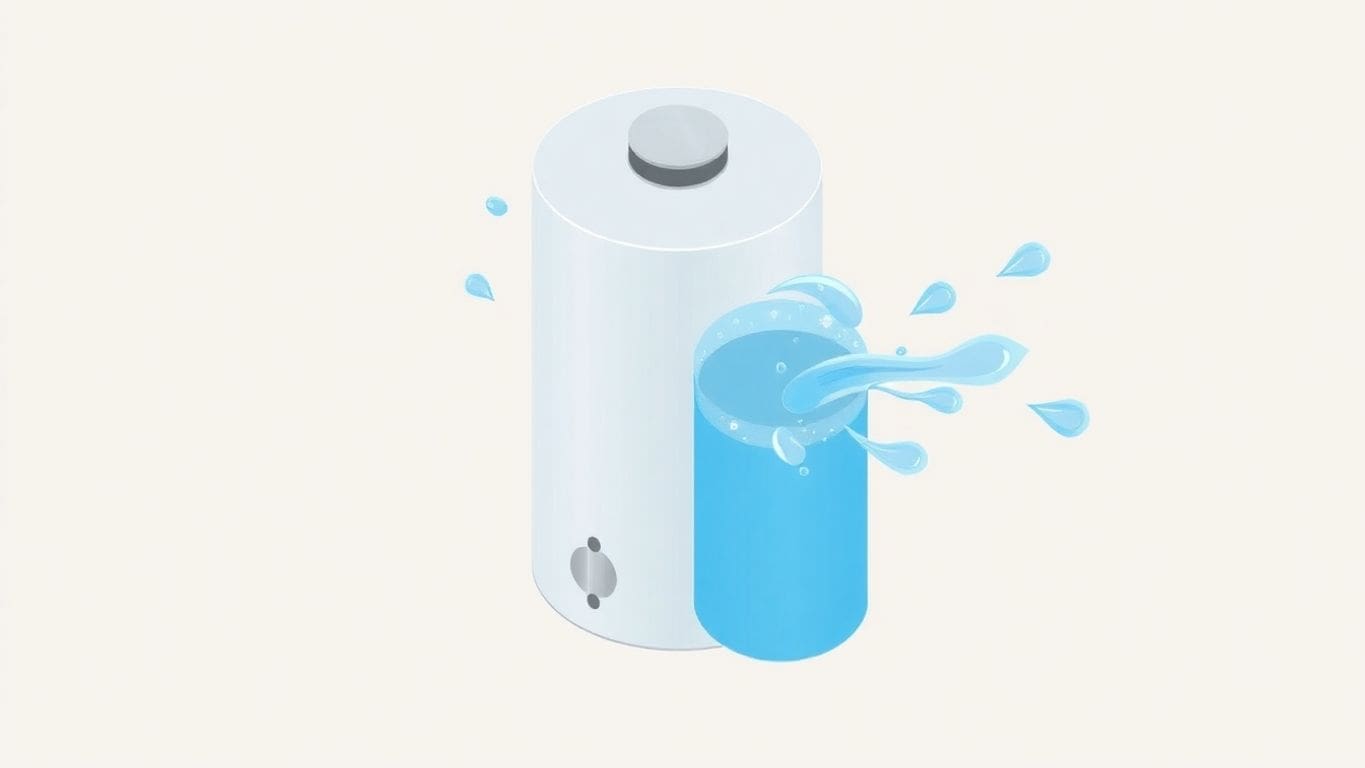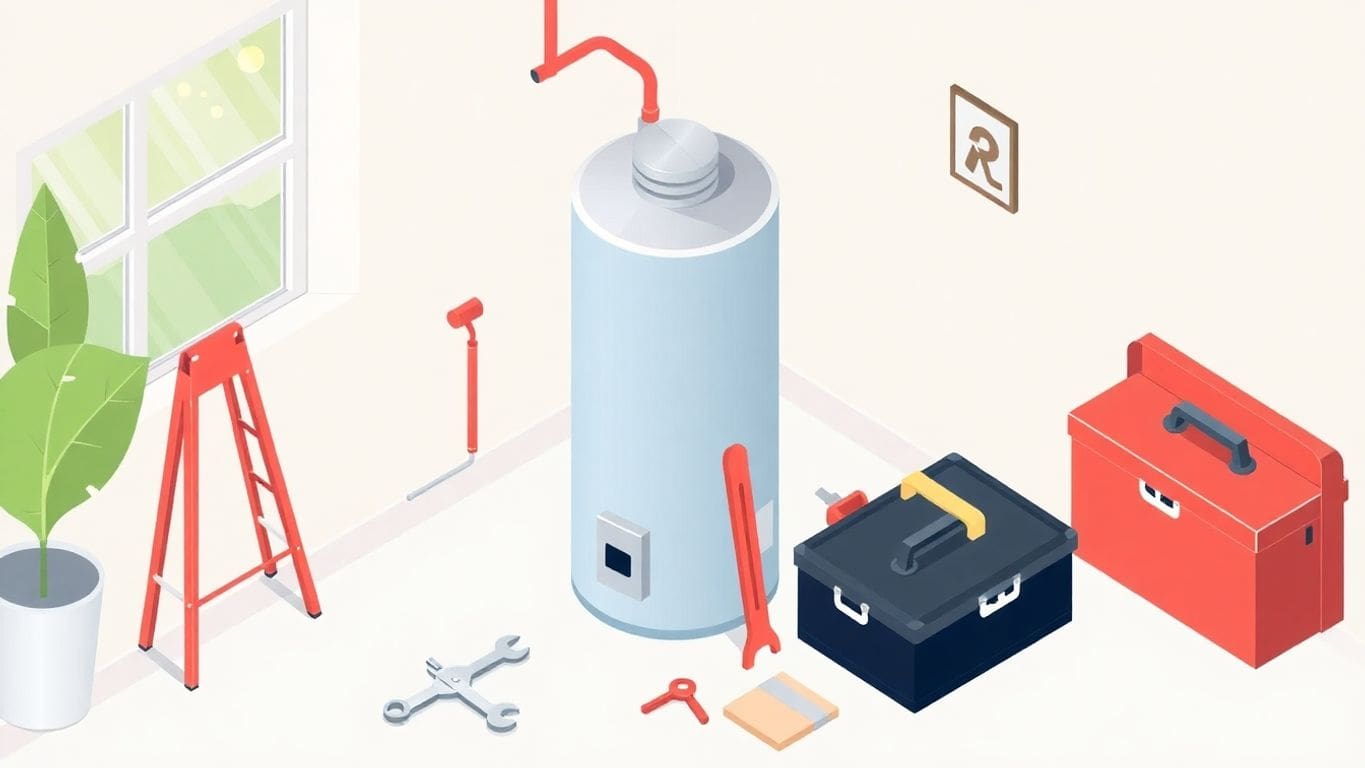
Hot water heaters are a key part of our daily routines, making showers, laundry, and dishwashing possible. But like any appliance, they can run into problems. If you’re wondering, “can a hot water heater be repaired?” you’re not alone. This article will help you understand the common issues that can arise with hot water systems, how to identify them, and what your repair options are.
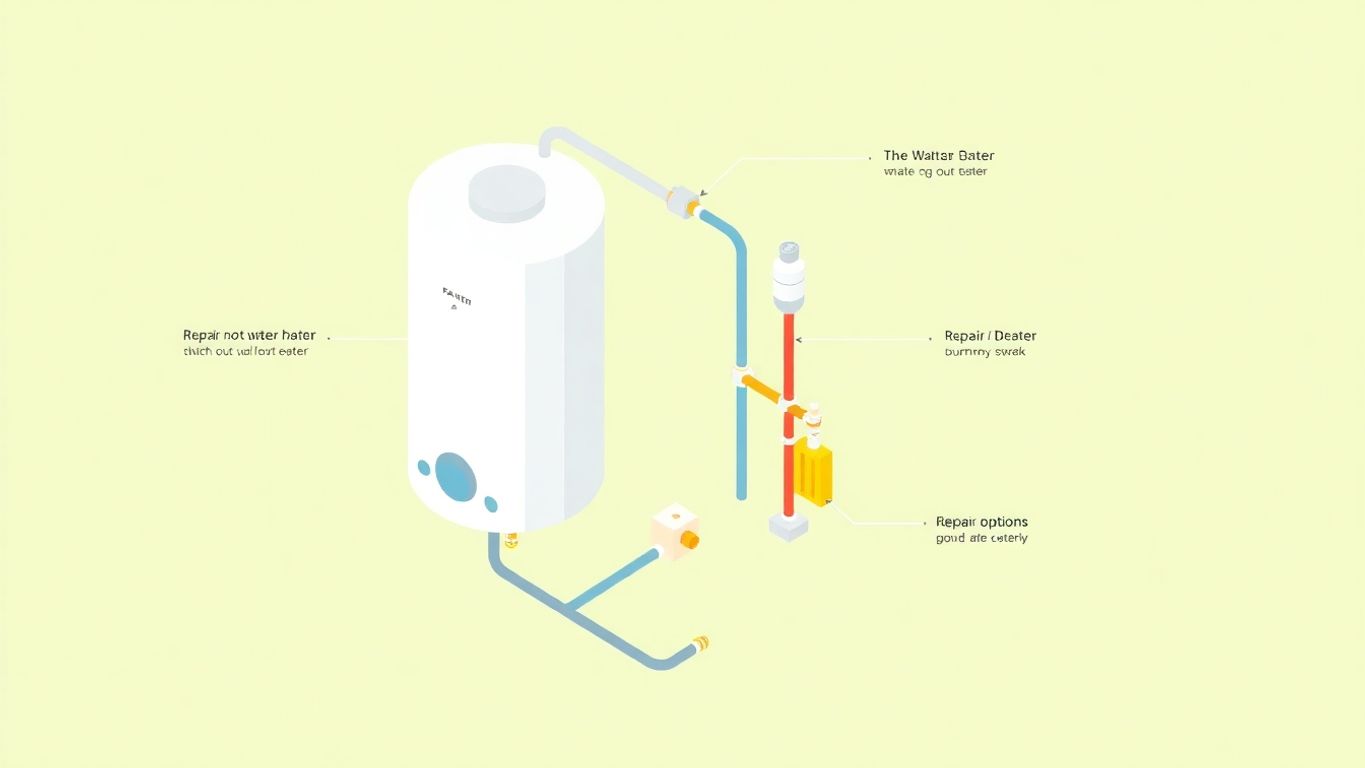
Before we get into fixing things, it’s good to know what kind of hot water system you have. There are mainly two types. Knowing which one you have will help you figure out what might be wrong.
Tank water heaters are the more common type. They have a big tank that holds water and keeps it hot. The size of the tank determines how much hot water you have at once. When you use hot water, the tank refills and heats up more water. These are usually cheaper to buy but can cost more to run because they’re always heating water, even when you don’t need it.
Tankless water heaters, also called on-demand water heaters, don’t have a tank. They heat water only when you turn on a hot water tap. This can save energy because they’re not constantly heating water. They can be more expensive to buy, but they might save you money in the long run. Plus, you’ll never run out of hot water!
Hot water systems can have problems over time. Here are some common ones:
Knowing these common issues can help you figure out what’s wrong and decide if you can fix it yourself or if you need to call a professional.
One of the most common problems homeowners face is leaks. Water around your water heater can cause big problems if you don’t fix it fast. Let’s look at how to find and deal with leaks in your hot water system.
Leaks can happen for a few reasons:
Knowing what to look for can help you catch a leak early. Here are some signs:
If you find a leak, here’s what you can do:
If you’re not sure what to do, it’s best to call a plumber. They can find the leak and fix it safely. Ignoring a leak can cause more damage and cost you more money in the long run.
It’s super annoying when you don’t have enough hot water, especially when you really need it. Let’s look at why this happens and what you can do about it.
Dealing with insufficient hot water can be a pain. Start with the easy fixes, like checking the thermostat and flushing the tank. If those don’t work, it might be time to call a plumber. They can diagnose the problem and recommend the best solution for your situation.
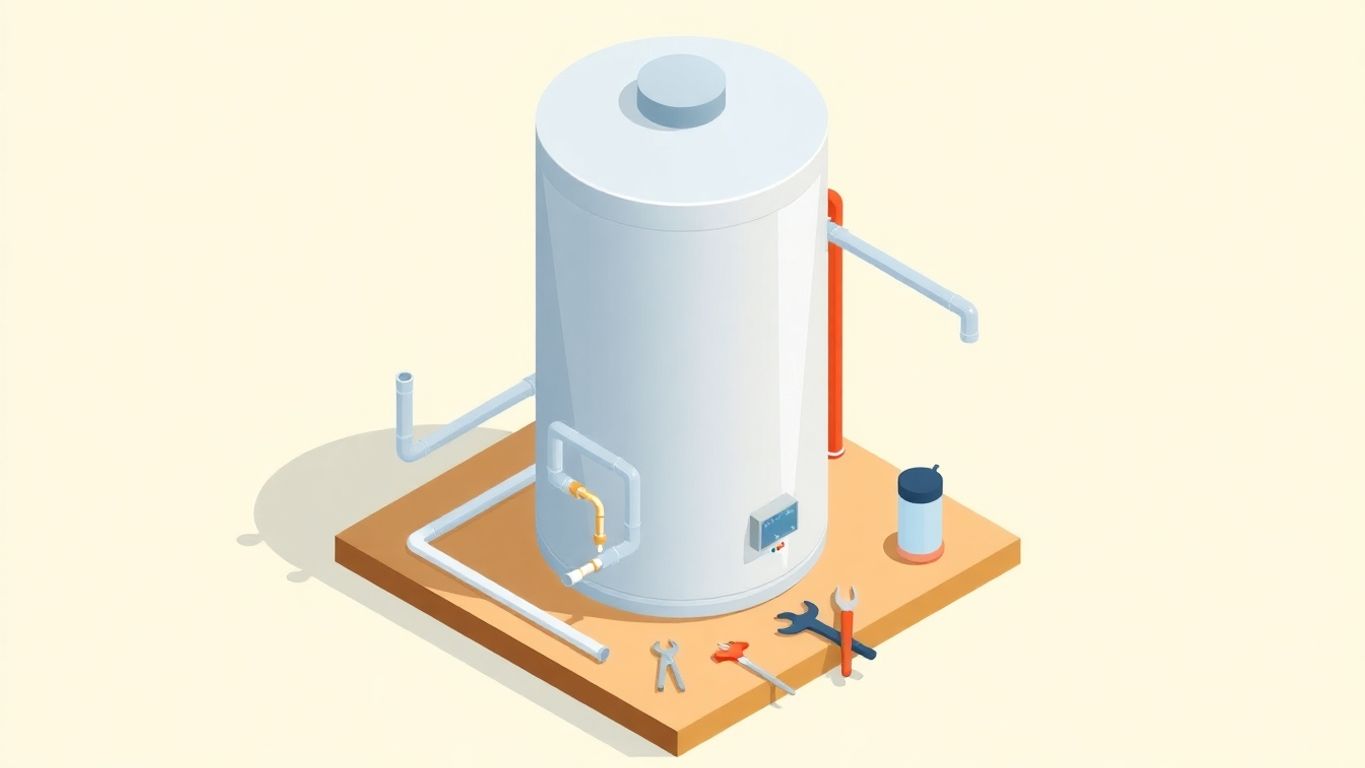
Is your hot water heater making weird sounds? It can be a little scary when you hear banging, hissing, or popping coming from it. Don’t worry, most of the time it’s fixable. Let’s figure out what’s going on.
Banging or Knocking: This often happens because of sediment buildup at the bottom of your tank. The water gets trapped under the sediment and boils, making a loud noise. It can also be from the metal expanding and contracting as it heats up and cools down.
Hissing: A hissing sound usually means there’s a leak somewhere. It could be a pipe or the temperature and pressure relief valve doing its job by releasing excess pressure.
Popping or Crackling: This is another sign of sediment. As the water heats up, bubbles form and pop against the hot metal, making those noises.
Whistling: A whistling sound can mean that there is some kind of restriction in the pipes. It could be a partially closed valve or a build up of mineral deposits.
First, listen closely. Where is the noise coming from? Is it from the top, bottom, or sides of the tank? Is it constant, or does it only happen when the water is heating up? Here are some things you can do:
If you’re not comfortable doing any of these checks yourself, it’s always best to call a professional. Safety first!
Here are some things you can try to fix the noises:
Electric hot water heaters can have some unique problems. One of the most common is that they just stop heating! Let’s look at some things that might be going wrong.
Sometimes, the fix is super simple. A tripped circuit breaker is often the culprit. Just go to your electrical panel and see if the breaker for the water heater is in the "off" position. If it is, flip it back to "on." If it trips again right away, there’s a bigger problem, and you should call a pro. It could be an overload or a short circuit.
If the breaker isn’t the problem, the heating element might be bad. Your water heater uses these elements to heat the water. If one burns out, you won’t get enough hot water, or any at all. You can test the heating elements with a multimeter. If they’re not working, you’ll need to replace them. This involves draining the tank and disconnecting the old element, so it’s a bit more involved.
Electrical work can be dangerous. If you’re not comfortable working with electricity, please call an electrician. Also, if you’ve tried the simple fixes and your water heater still isn’t working, it’s time to get a pro involved. They can diagnose the problem and fix it safely.
Remember, messing with electricity can be risky. If you’re unsure about anything, it’s always best to call a qualified electrician or plumber. They have the tools and knowledge to handle these issues safely and correctly.
So, your hot water heater is acting up? Don’t worry, there are a few things you can try before calling a professional. Let’s look at some common repairs you can do yourself.
Sometimes, the fix is simple. First, check the reset button on your water heater. It’s usually a red button. If it’s tripped, push it. If that doesn’t work, you might need to replace some parts. You can replace a faulty heating element or thermostat yourself. Just make sure to turn off the power first!
Leaks can be a pain, but sometimes they’re easy to fix. If you see water leaking from a connection, try tightening it. Use a wrench, but be careful not to overtighten, or you could damage the fitting. If tightening doesn’t stop the leak, you might need to replace the corroded parts.
If you see rust or corrosion on your water heater, it’s a sign that parts are failing. You can replace corroded pipes or fittings yourself, but it can be tricky. If the damage is bad, a plumber might suggest a new water heater. It’s important to deal with corrosion quickly to prevent bigger problems.
Fixing a hot water heater yourself can save money, but be careful. Always turn off the power or gas before you start working. If you’re not comfortable doing the repairs, it’s best to call a professional. Safety first!
Sometimes, fixing a hot water heater is more than a DIY job. You might be able to handle small things, but some problems need a pro. Knowing when to call someone can save you money and keep you safe.
Some hot water heater problems are just too complicated for the average person to fix. These include:
Trying to fix something you’re not qualified to handle can make the problem worse and even void your warranty. It’s always better to be safe than sorry.
Calling a professional costs money, but it can save you money in the long run. Here’s why:
| Factor | DIY | Professional |
|---|---|---|
| Initial Cost | Lower | Higher |
| Time | More (learning curve) | Less (experience) |
| Safety | Riskier | Safer |
| Long-Term Cost | Can be higher due to mistakes | Often lower due to correct diagnosis |
| Warranty Impact | May void warranty | Preserves warranty |
| Complexity of Task | Limited to simple tasks | Handles complex repairs |
Taking care of your hot water heater can help it last longer and work better. It’s like taking care of your car – a little effort can save you from big problems later. Here’s how to keep your water heater in good shape.
Check your water heater every few months. Look for any signs of leaks, corrosion, or damage. Make sure there’s no water pooling around the base of the tank. Also, listen for any strange noises. If you catch problems early, they’re usually easier and cheaper to fix.
Sediment can build up in your water heater tank over time. This sediment can make your water heater less efficient and can even damage it. Flushing the tank once a year can help remove this sediment. Here’s how you do it:
Flushing the tank can seem like a pain, but it’s worth it. It helps your water heater work better and last longer. Plus, it can prevent costly repairs down the road.
The anode rod is a metal rod inside your water heater tank that helps prevent corrosion. It’s like a sacrificial lamb – it corrodes instead of the tank itself. Over time, the anode rod will dissolve, and it needs to be replaced. Here’s what you should know:
| Inspection Frequency | Action |
|---|---|
| Every 3-6 Months | Check for leaks and strange noises |
| Annually | Flush the tank |
| Every 2-3 Years | Inspect and replace the anode rod (if needed) |
Your hot water heater likely came with a warranty. This is a promise from the manufacturer to fix or replace the heater if something goes wrong within a certain time. Read your warranty carefully to know what’s covered. Warranties usually cover parts and sometimes labor. Keep your purchase receipt and warranty paperwork in a safe place. You might need them if you have to make a claim. Some warranties are longer than others, so it pays to compare when you buy a new heater. You can also look up Daikin warranty overview online.
Sometimes, repairing your hot water heater isn’t the best option. Here are some signs it might be time for a replacement:
If your heater is showing these signs, it might be more cost-effective to replace it. New models are often more energy-efficient, which can save you money on your utility bills in the long run.
If you decide to replace your hot water heater, you have several choices. Tankless water heaters are a popular option. They heat water on demand, so you don’t have to store hot water. This can save energy. Traditional tank heaters are usually less expensive to buy. Consider the size of your household and your hot water needs when choosing a new heater. Here’s a quick comparison:
| Feature | Tank Heater | Tankless Heater |
|---|---|---|
| Upfront Cost | Lower | Higher |
| Energy Efficiency | Lower | Higher |
| Space | More | Less |
| Hot Water Supply | Limited | Unlimited |
Think about your budget, energy use, and space when making your decision. You can also explore heating & replacement options with a professional.
Yes, some small problems can be fixed by yourself, like adjusting the thermostat or tightening loose connections.
If you notice a leak, try to find the source. Tighten any loose fittings or call a plumber if the leak continues.
Check if the water heats up quickly and stays hot for a long time. If it doesn’t, there might be a problem.
Noises can come from sediment build-up in the tank or issues with the heating elements.
If you see continuous leaks, hear loud noises, or if the heater won’t turn on, it’s best to call a professional.
It’s good to check your hot water heater every year and flush the tank to remove sediment.
If it’s over 10 years old, has frequent issues, or shows signs of rust, it might be time for a new one.
Yes, most hot water heaters come with warranties that cover repairs or replacements for a certain period.

